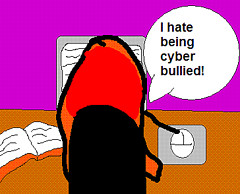Most parents will by now wonder how they can protect their children and direct them to child-safe websites. Fortunately a non-profit site, Quib.ly offers a forum where concerned parents, teachers and care-givers can seek out the advice of experts in the field of cyber technology as well as child development psychology. If you visit this site you may well find that your particular concern is shared by others. Experts in their respective fields will be able to steer you in the direction of child-safe websites and you will have the opportunity to share knowledge gained by parents in your position.
You will probably find that most contributors on Quib.ly will suggest that you engage with the child when he or she does web-surfing and then alert the child to sites that may be age-inappropriate, content inappropriate or predatory sites operating under the guise of child-friendly, or “cool”. Educate them to the risks of scam artists, pedophiles, and how to use intuitive and learned skills to avoid them.

Image credit: J_O_I_D (Source: Flickr)
Social Networking sites, whilst the “in thing” with the young crowd, are themselves a minefield of potential hazard. Predators can use personal information and photographs to target innocent would-be victims. Make sure your child does not give away sufficient information for such groups or individuals to find and make personal contact with the child. If, on a social network site, someone unknown tries to make personal face-to-face contact with the child, they should immediately bring it to the attention of an adult.
Cyber-bullying uses the social networking sites to conduct its despicable game of frightening or humiliating its victims. It arises from numerous causes, most of them located in the personal inadequacies or insecurities of the bully himself or herself. Bullies are generally part of a sub-group who put out a mythology about themselves as being the coolest of cool. Those outside the sub-group, who would in general be an individual excluded from the bullying sub-group by their own choice, are the preferred targets for this anti-social behaviour. By their own sick rules the victim has brought it on himself and thus deserving of the scorn and contempt and even threats visited upon him by the bully.
Whist advising strongly that cyber-bullying should be stopped in its tracks and action taken against the bully, there are often circumstances that make the victim reluctant to report what is happening to him. It may be physical fear, it may be that he is embarrassed to admit that he has been singled out for this unwanted attack.
Look for the warning signs: If the child becomes withdrawn and there is no obvious explanation for his sudden change of routine or demeanour, try to get him to confide the cause of his anxiety. Be sympathetic, be supportive and reassure him of his own worth and the utterly contemptible nature of a person who engages in this kind of behaviour. If it is a schoolmate, take the matter up with his teacher.
If you discover that your own child is a cyber bully It is an even bigger problem and must be addressed with urgency and seriousness. Again I suggest you put the matter to the forum run on the Quib.ly site. You may discover that you are not the only parent who has made this disturbing discovery about your child. It has to be stopped for his own sake. Is he doing it through motives or pure malevolence or is he himself using it as a weapon against others who are bullying him? He certainly needs guidance to restore a value system of kindness and decency, but it may be a symptom of deeper psychological problems crying out for intervention.
